 |
||||||
Understated, no bling, fluff, bells or whistles - that's Densen from Denmark saving Hamlet from insanity. |
||||||
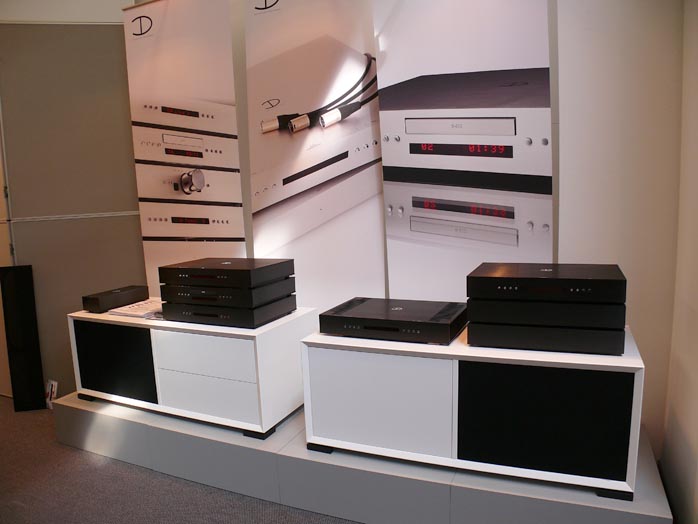 |
||||||
Before you erroneously concluded that Chario and Sonus Faber was all the wood Italy had to offer for boxes -- that's what Germans call loudspeakers -- here's Diapason's Adamante (and let's not forget Opera Loudspeakers while we're at it). |
||||||
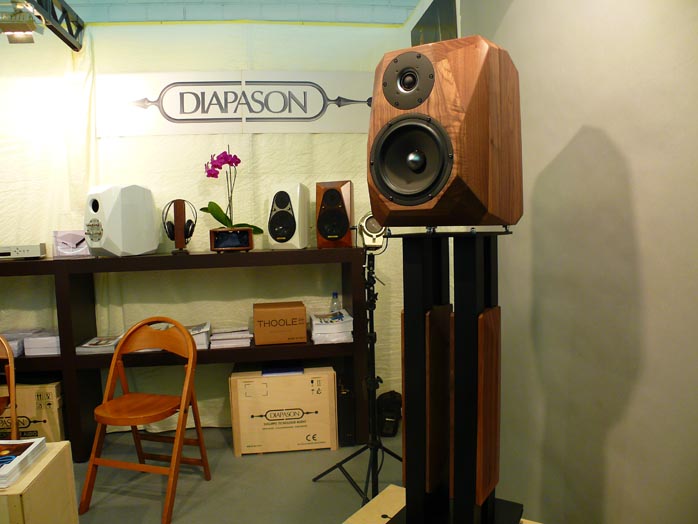 |
||||||
Device Solution Laboratory I'd never come across before. From Germany, the focus is on real engineering as applied to audio. |
||||||
 |
||||||
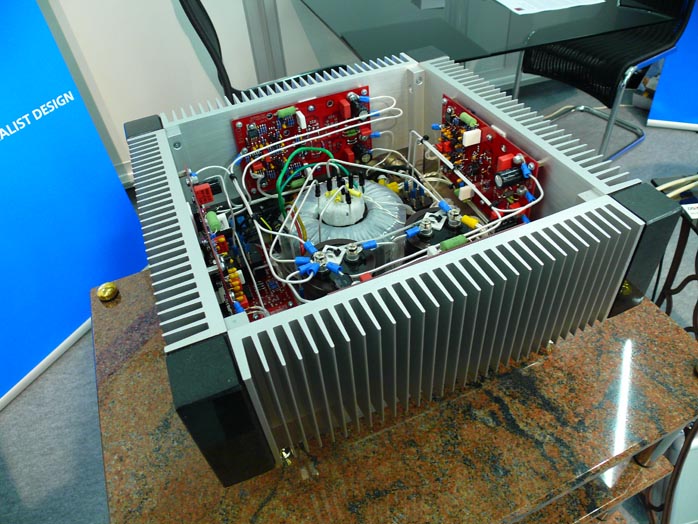 |
||||||
Dynaudio doesn't just make colossal statement speakers. Most folks would never need more than these two-way monitors. Which of course prevents nobody properly indoctrinated to aspire to more, often to the detriment of what a room can actually support. |
||||||
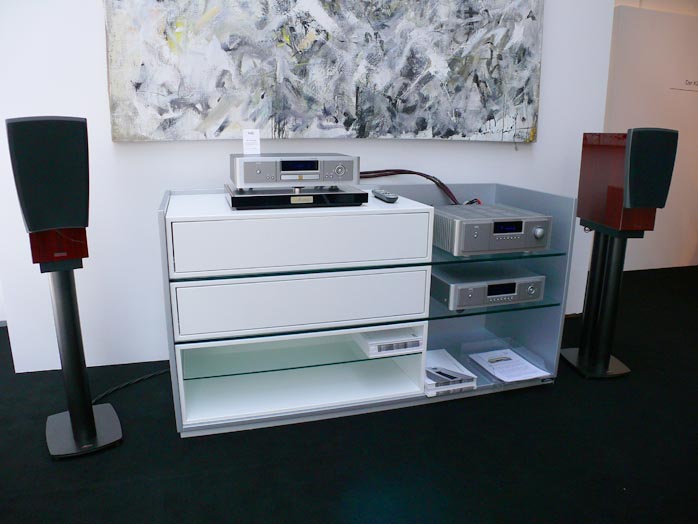 |
||||||
Had he tried Jozefina's EAT KT88s I'd asked Octave's Andreas Hofmann whose amps take KT88s (or 6550s). No, he demurred. She'd wanted to charge him a lot and seeing he's a volume amplifier manufacturer who'd go through a lot of tubes if they suited, he wasn't up to spending deep for samples. Her 300Bs are truly top-shelf and as good as my favorites, Jac van der Walle's Emission Labs - if like me you're after the modern, not Western Electric sound. |
||||||
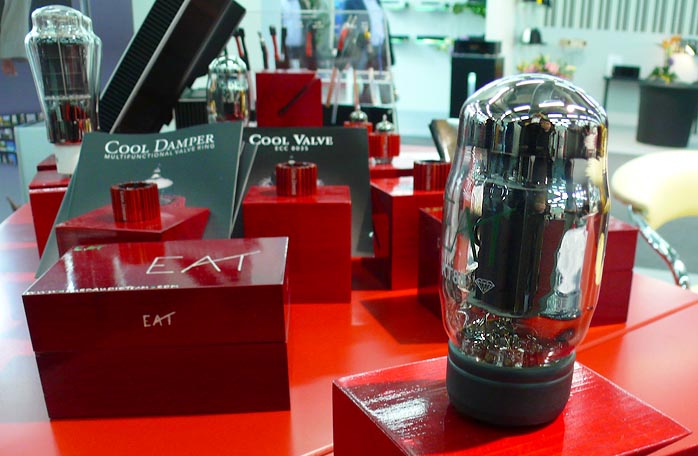 |
||||||
The big news for EAT weren't valves this time around though but - a new turntable. |
||||||
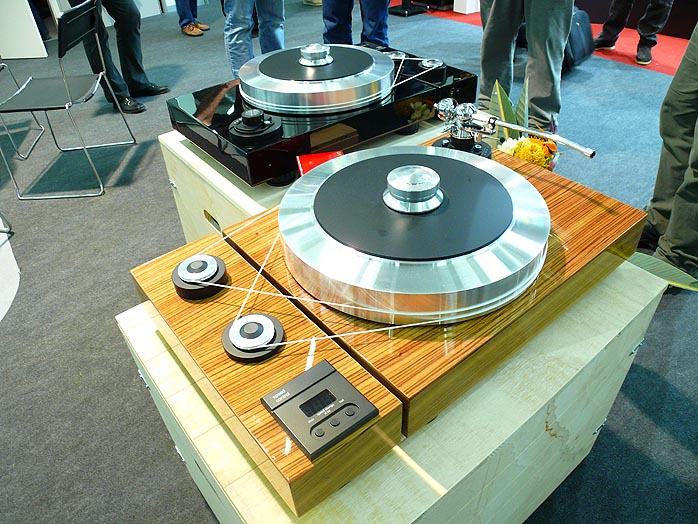 |
||||||
French firm Eera "I swear to read the truth, the whole truth and nothing but the truth", had their new flagship CD player. |
||||||
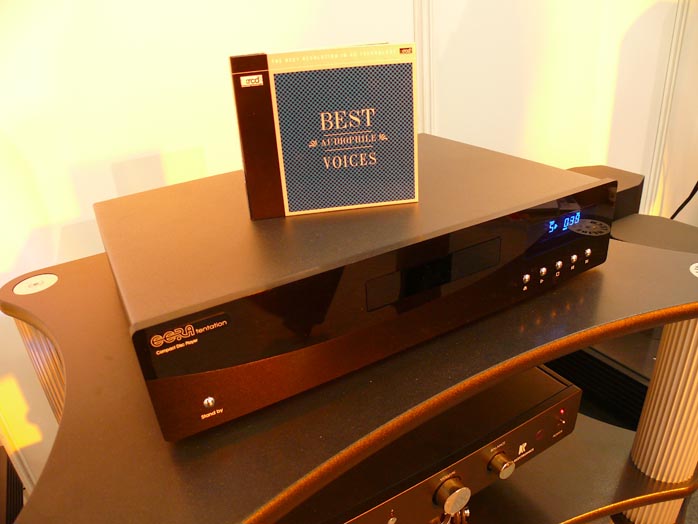 |
||||||
ELAC is yet another Teutonic outfit with a love of AMTs. And like Audio Physic, they aim to befriend the interior decorator with artistic finish options as displayed below. Death to Henry Ford drab? Only if you're tired of it. |
||||||
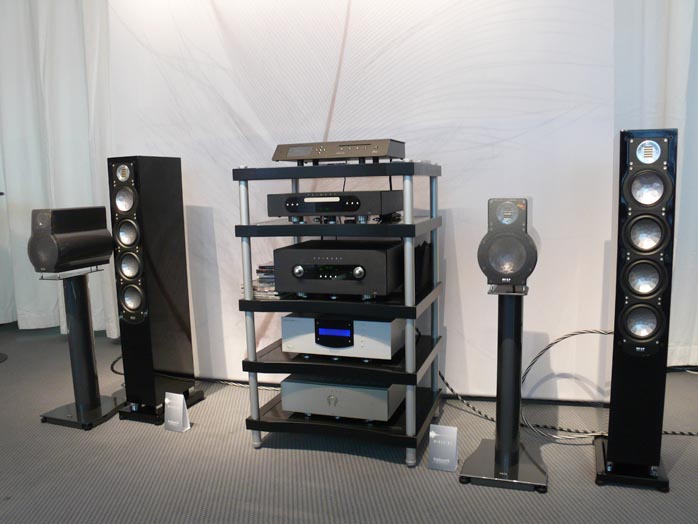 |
||||||
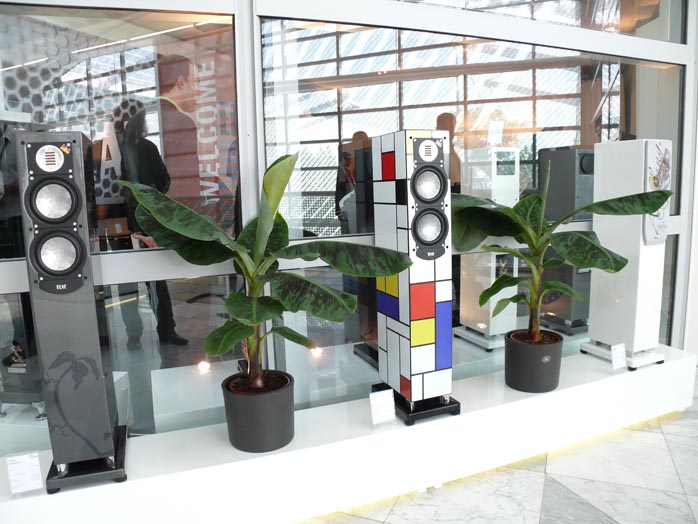 |
||||||
As covered in a pre-show industry feature, Emillé Labs from South Korea introduced three new components. They showed with the latest version of Jacob George's Rethm Saadhana with new speaker terminal solution, new metal rail base and twice the power for the internal bass amplifier. Acoustic tuning was by Advanced Acoustics whom you can read up on in my review of their Orbis panels. |
||||||
 |
||||||
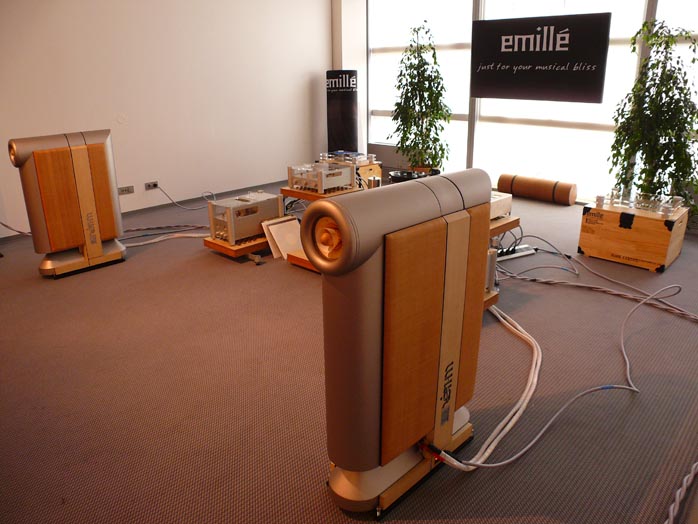 |
||||||
Here is Emillé's marketing ambassador at large Vital Gbezo and the company's Young Kim. |
||||||
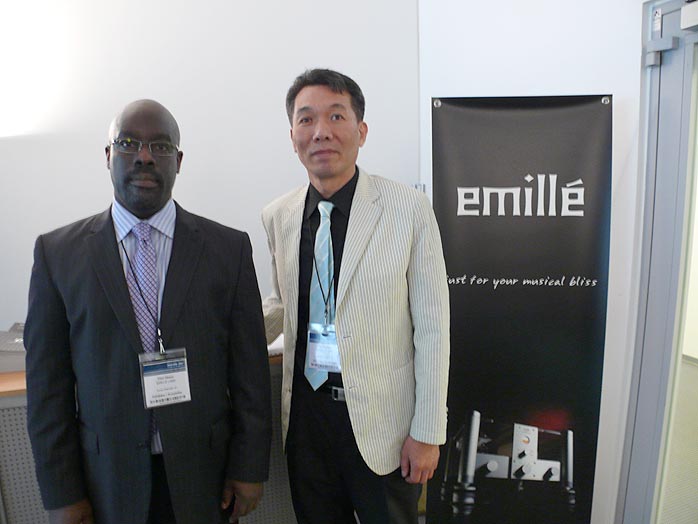 |
||||||
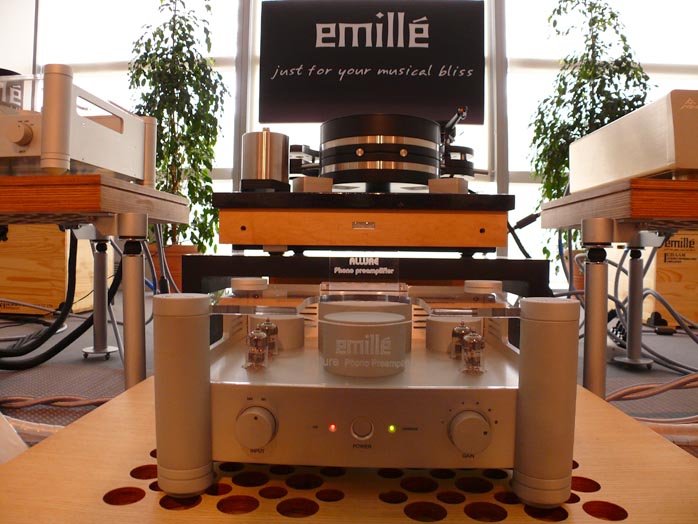 |
||||||
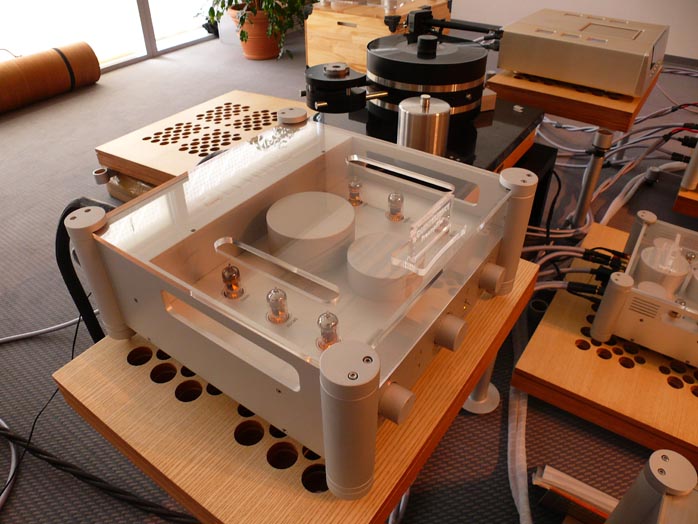 |
||||||
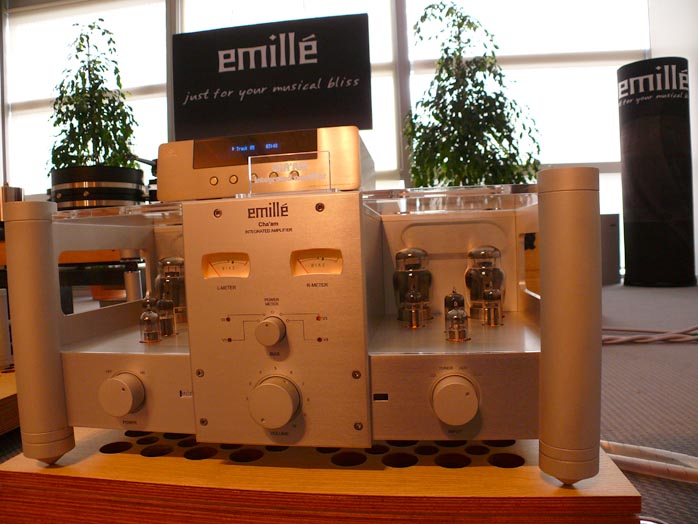 |
||||||
Audio racism exists in many forms. The one Rethm has battled since inception is the Lowther curse. That's when people who have never heard a Lowther know exactly what one sounds like. The deconditioning process is far slower than the acquisition process of preconceived notions. And audio is full of those. That's perhaps the best argument for blind auditions - to not know whether you're listening to tubes or transistors, metal or soft domes, feedback or none, horns or panels, Lowthers or Accutons, class A or D and so on. Judging things purely on what they actually do rather than what we think they ought to... that would be quite novel, wouldn't it? |
||||||
 |
 |
|||||
 |
||||||